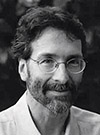Listen closely

To hear God, it helps to let go of our fears, our masks, our busy-ness, our desire to control, construct, and analyze. (Laurenz Kleinheider, unsplash.com)
Discernimento. It means, according to an Italian friend, not making a total and complete fool of yourself. He and I were talking about the word discernment in its various contexts, and how both of us, growing up Catholic, thought vaguely that the word meant waiting around to be picked for the holy all-star team with the same shout, “I Am Who Am!” that Moses got.
Both of us, at the tender age of 13, had visited a seminary, he in Palermo and me in New York, and both of us had sat in chapels there, diligently trying to discern if we were being called by the Lord to selfless service, but neither of us felt anything at all except increasingly hungry for lunch. My friend said all he thought about were girls and soccer, and all I thought about were girls and basketball. Finally I slipped out of the dank chapel to the gleaming seminary basketball court to make the most of that lovely gymnasium before our parish priest drove us back to the city, sighing at our total lack of discernment.
Listen to yourself
Later, though, I learned that the word meant something like downshifting, and listening, and pondering, and praying, and pausing, and contemplating, and waiting a moment before doing something headlong. It didn’t mean caution, or shilly-shallying, or hesitating, quite—it was more like losing your ego, or trying to. It means getting out of your own way and allowing some quiet sense of perspective and priority and honest passion to insist on itself. It means not being in charge, not being sure of yourself, not being in command—in a real sense it means not being any of the things considered cool in our culture.
I suppose it means, if we are really blunt, trying to listen to something we cannot explain very well, for which we have to use the essentially useless word God. If ever there was a word that didn’t cover anything of that which it purports to mean, it’s the word God—“worst nickname ever,” as the fine essayist David James Duncan says.
But think of it this way—Christ liveth in me, as old prickly, thorny, complicated Saint Paul said. So discernment, it seems to me, isn’t sitting around waiting for a booming voice to send driving directions for your life; it’s downshifting your ego and your desires and your dreams, ever so gently setting them on the shelf for a moment, and trying to hear the quiet voice of the You under and beyond the person you are in the world.
Does that make sense? I think you know exactly what I mean—the You who knows full well when you sinned, though no one else will ever know; the You who feels ashamed and embarrassed after you are snide and rude and cutting and sarcastic and cruel, though you would never admit that to a soul. Call that interior You whatever you like. Call it the voice of the Mercy that spoke everything into being. Call it the shard of the light that lives in every soul, and is the actual miraculous Resurrection, with total respect to the empty tomb long ago. Call it conscience, soul, awareness, awakening, epiphany, satori, your better nature, your deepest music, your original thrum, your unadorned self, the one who has taken off all masks, shucked all personas. That one.
I know what I am talking about here because I was so unbelievably awful at discernment deep into my 20s that my life in many parts was a bumbling circus. I lurched this way and that, I stumbled into decisions, I lied to everyone about pretty much everything, I even lied about my name once with a summer fling, how egregiously low is that?
But I learned, slowly and haltingly and awkwardly, to let go of personas and masks; to stop trying to be what I thought others wanted to see; to push past the easy thing, and reach for the harder and more complicated and absolutely more painful thing. In a real sense, I learned to stop thinking and cogitating and measuring and weighing and just be still and let the bones of real things present themselves—to let the tide of intellect and desire ebb for a while, and see what strong true things were present under the muddy swirl.
Lose track
It was terrifying to ask a woman to marry me. Do you think it is easy, to offer yourself up so nakedly, with such patent fear in your heart that she will say no, or even worse she will say yes and you will disappoint her, betray her, not be good enough for her? Believe me, I sat many hours over that question before I got down on my knees to ask it. Perhaps that was the first time I really tried to listen to something beyond and under my usual fervid mental and emotional burble. And sitting quietly, trying to listen to the very deepest music inside myself, I came to know that she was the woman to ask, even as I also knew, full well and beyond a doubt, that marriage to her would be complex and bruising sometimes, confusing and painful, tense and strained, and there was no assurance of it lasting. But it would be deeper, in pain and in joy, and I knew finally that the best me was the young man who had the guts to ask that question of that young woman, without having any idea of her answer.
Big questions: Should we continue to try to have children? Small questions: Should I drive away from the parking lot and pretend I did not scratch that car? Big questions: Can I let go of my fear and fury at a terribly wayward child and seek only to love her more patiently, to be of service in her struggle and not be more brooding weight for her to carry? Can I stop advising my children, now that they are in their 20s, and let them go, let them discern their roads for themselves?
How do you make these choices? How do you listen to the Voice? My quiet, muddled advice: Be silent. Hide your phone. Sit near the sea or a river or a forest. Lose your ego. Turn off your brain. Take off your masks, gingerly, one by one. Bow gently to those you love and then ignore them. Be still. Stop thinking. Do not measure and calibrate and gauge. Let go. Listen to the birds. After a while, you will lose track of the time, and after another while, sometimes, you will know. Don’t leap up, and don’t immediately put it in words. Enjoy the moment. It’s hard to get to that blessed country, and I find it pleasant to linger. Best of luck.
Remember to say thanks to Whatever it is that we are talking about. You and I know what we are talking about, but some things are better left unnamed so we can hear them better. Words sometimes get in the way.
Reprinted with the permission of The Permissions Company, Inc., on behalf of the Estate of Brian Doyle, www.permissionscompany.com.
A version of this article originally appeared in VISION 2016.
Related article: VocationNetwork.org, “What does it mean to say that God is calling me?”
Tags
Related
- Questions Catholics Ask: What are the different forms of prayer?
- What does “success” look like in discernment?
- How to find a guide for your vocation adventure
- Beware of bots and bad actors as you engage online
- Call stories to help you discern
- Five reasons to pray the Liturgy of the Hours
- Tune into your prayer life
- Embody your decisions
- Your mission awaits you! Pope Francis' message to young people
- My portable prayer life Read More
Most Viewed
- Find your spirituality type quiz
- Questions and answers about religious vocations
- Celibacy quiz: Could I be a nun? Could I be a brother? Could I be a priest?
- Resources for older discerners or those with physical and developmental differences
- About Vocation Network and VISION Guide


